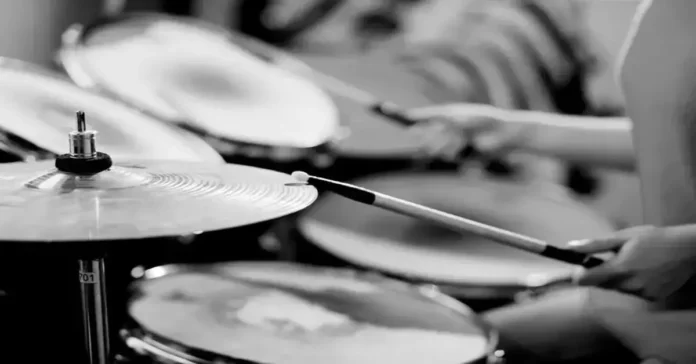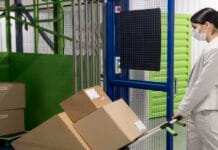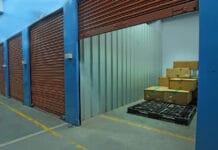Whether you’re a seasoned musician or a passionate beginner, the way you store your instruments can make a world of difference in their longevity and performance. While decluttering your space on a renovation journey, it’s important to pay attention to how you store your musical treasures.
Proper musical instrument storage goes beyond just finding a spot to tuck them away. It’s about creating a space that not only keeps your instruments safe but also enhances their sound quality and lifespan. Imagine a neatly organized area where each instrument has its designated place, free from the chaos of clutter.
Moreover, during times of renovation, when your home may be in a state of flux, having a well-organized storage system for your musical instruments ensures they remain safe and sound throughout the process. By implementing smart storage practices, you can declutter your space while keeping your instruments in top-notch condition.
Musical Instrument Storage
As you dive into the world of musical instrument storage, you’ll discover the art of box storage – a method that not only protects your instruments from dust and damage but also makes them easily accessible when inspiration strikes. Whether you’re storing a guitar, a violin, or a set of drums, the right storage solutions can make all the difference.
Join us as we explore five amazing tips for effective musical instrument storage, from choosing the perfect storage location to utilizing protective cases and covers. Let’s organise your storage space and elevate your musical experience to new heights!
Tip 1: Choosing the Right Storage Location
When selecting a storage location for your musical instruments, several factors come into play. First and foremost, consider the accessibility of the storage area. It should be easily accessible to you whenever you need to retrieve or use your instruments. Also, think about the security of the location. Ensure that the storage area is safe from potential theft or damage.
Another crucial factor is the environmental conditions of the storage space. Ideally, choose a location that is away from direct sunlight, as prolonged exposure to sunlight can cause damage to your instruments. Furthermore, consider the level of humidity and temperature in the storage area. Avoid places with extreme fluctuations in humidity or temperature, as these can affect the condition of your instruments.
Tip 2: Climate Control and Humidity Management
Maintaining stable humidity levels and temperature is paramount in protecting your musical instruments from damage. Fluctuations in humidity can cause wood instruments to swell or shrink, affecting their playability and sound quality. Similarly, extreme temperatures can warp or crack instrument components.
Investing in climate-controlled storage or using dehumidifiers and humidifiers can help regulate humidity levels and temperature. Keep instruments away from areas prone to moisture, such as basements or attics, as excessive moisture can lead to mold growth and corrosion of metal parts.
By prioritizing climate control and humidity management in your storage space, you can significantly prolong the lifespan of your musical instruments and ensure they remain in optimal condition for years to come.
Tip 3: Proper Instrument Placement
Proper instrument placement is essential to prevent overcrowding and potential damage. When arranging instruments, consider their size, shape, and fragility. Avoid stacking heavy items on top of delicate instruments and ensure they have enough space to breathe. Utilize wall mounts, shelves, or designated stands to keep instruments organized and easily accessible. By following best practices for placement, you can protect your instruments from accidental knocks or falls and maintain their optimal condition for longer.
Tip 4: Cleaning and Maintenance
Regular cleaning and maintenance are crucial for ensuring the longevity of musical instruments. Use appropriate cleaning tools and solutions recommended for each instrument type to remove dust, dirt, and grime. Inspect instruments regularly for signs of wear, such as loose strings or keys, and address any issues promptly. Additionally, lubricate movable parts, tune instruments regularly, and store them in a clean, dust-free environment to prevent damage and maintain their performance quality.
Tip 5: Using Protective Cases and Covers
Using high-quality cases and covers is a smart way to safeguard instruments during storage and transport. Invest in cases specifically designed for each instrument type, ensuring a snug and secure fit. Protective cases shield instruments from dust, moisture, scratches, and impact damage. They also provide cushioning and support, reducing the risk of structural damage during handling or transportation. With proper protection, your instruments remain safe and pristine, ready for use whenever inspiration strikes.
Why a self storage for musical instruments storage?
A self storage facility has storage space (rooms, lockers, containers) called ‘storage units’ which are available for rent on a short-term basis. This space can provide storage benefits and conditions that you can’t ensure at home yourself.
The material that your instrument is made of is affected by the climate, the weather, and the humidity levels. Extreme heat, cold, dust, and humidity are the greatest dangers.
Wood is especially prone to expand in humidity and contract in cold, dry conditions. Pianos, which are a combination of wood and metal, are more prone to expansion/ contraction in varying degrees. In a self storage facility, the well-protected environment ensures that your instruments are subjected to minimal exposure to these factors and are well-preserved.
Also, if you pull special instruments out once in a while and do not jam with them regularly, or if there is a period where playing your instruments wouldn’t be possible, then you can opt to keep them in the facility.
Apart from this, some instruments like a grand piano, tubas, drums might be too large to store at your house. At a self-storage facility, you can get the exact space that you need for them. Moreover, you’ll have your key and be able to retrieve them comfortably as you need.
Final Words on Musical Instrument Storage
Effective musical instrument storage is a combination of strategic placement, regular maintenance, and protective measures. By following best methods for instrument placement, you can prevent overcrowding and potential damage, ensuring each instrument has its designated space for safekeeping. Regular cleaning and maintenance routines are essential to prolong the lifespan of your instruments, keeping them in optimal condition for superior performance.
Additionally, using high-quality protective cases and covers adds an extra layer of defense against dust, moisture, scratches, and impact damage, both during storage and transport. By incorporating these tips into your musical instrument storage routine, you not only protect your valuable instruments but also enhance their longevity and preserve their sound quality.
Remember, a little care and attention go a long way in ensuring that your instruments remain in top-notch condition, ready to inspire and delight for years to come.
FAQs
A1: You can protect your instruments by using padded cases or covers and storing them in a climate-controlled environment.
A2: Store guitars vertically to prevent warping, and keep them in a case or on a wall mount to avoid damage.
A3: Clean and dry your instruments thoroughly before storage, and use protective cases with moisture-absorbing materials.
A4: Yes, but ensure the unit is climate-controlled to protect the piano from temperature and humidity fluctuations.
A5: Disassemble drum kits if possible, use padded covers for drums, and store percussion instruments in protective cases.
A6: Store electronic keyboards in a dust-free environment and cover them with a protective case or cloth when not in use.
A7: It’s best to store instruments separately to avoid damage from contact or pressure.
A8: Check on your instruments periodically, especially if they’re stored long-term, to ensure they remain in good condition.
A9: Yes, but consider investing in insurance coverage and storing them in a secure, climate-controlled unit.
A10: Address any damage or issues promptly by consulting a professional instrument repair technician.








